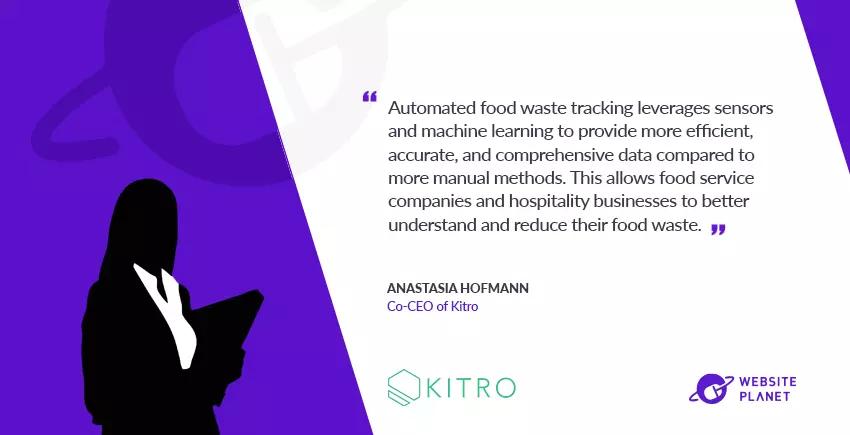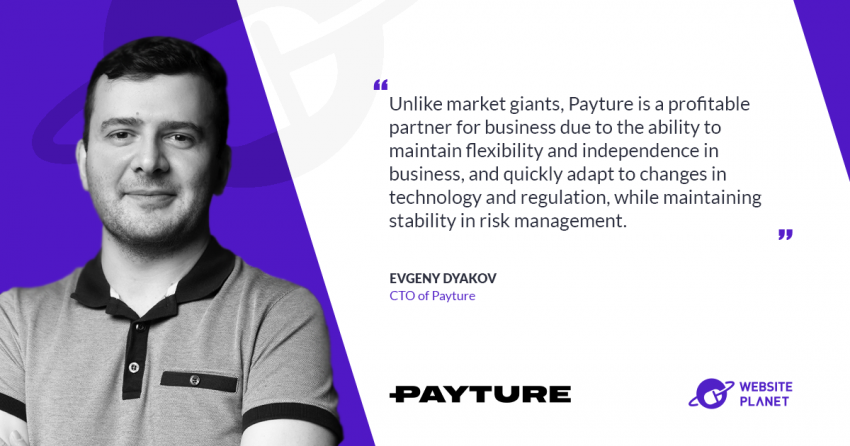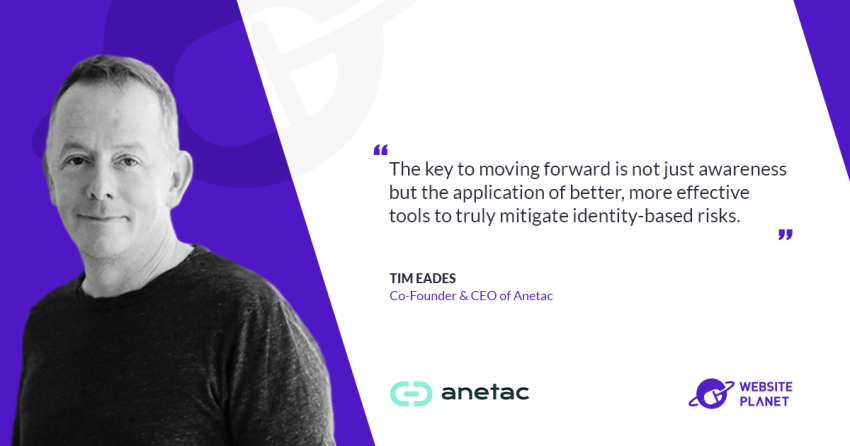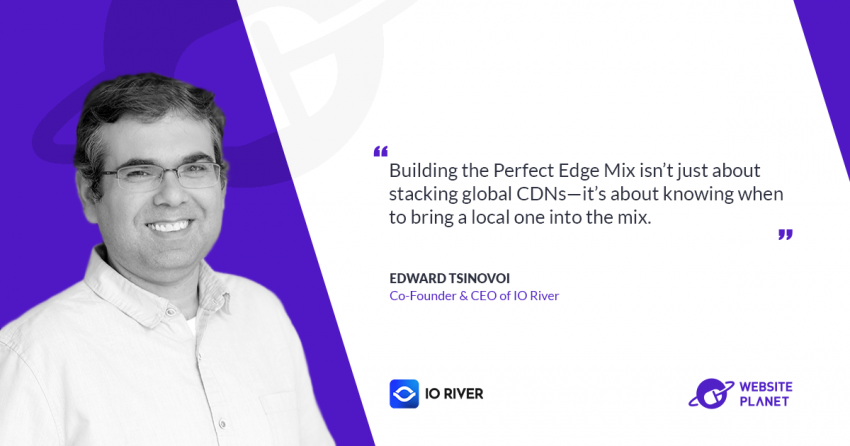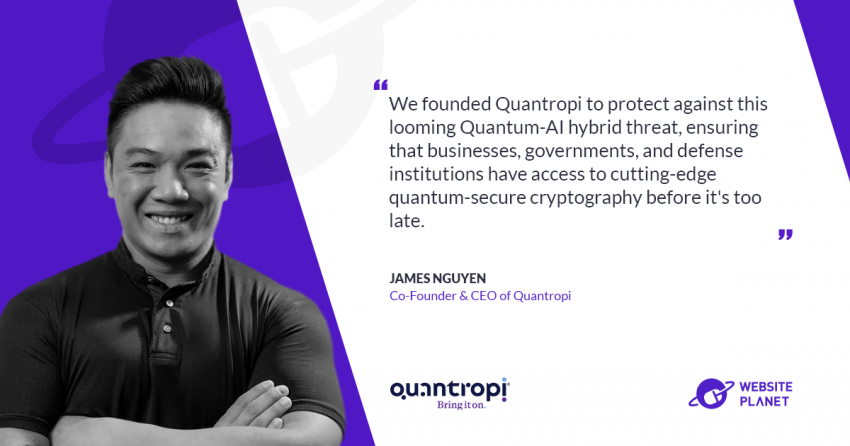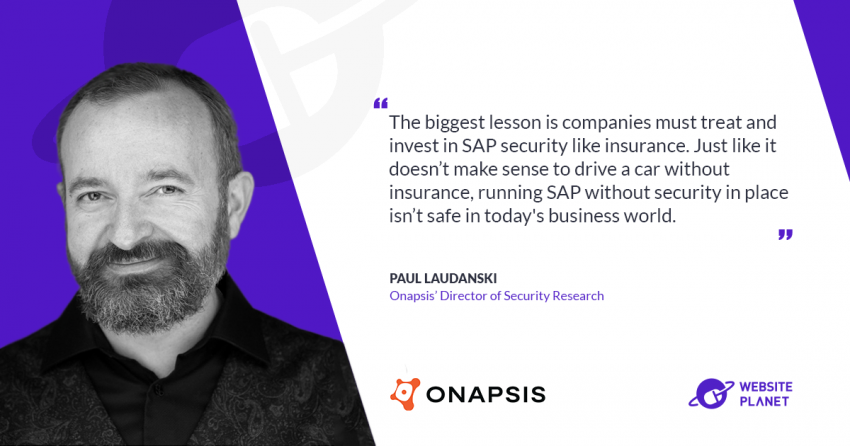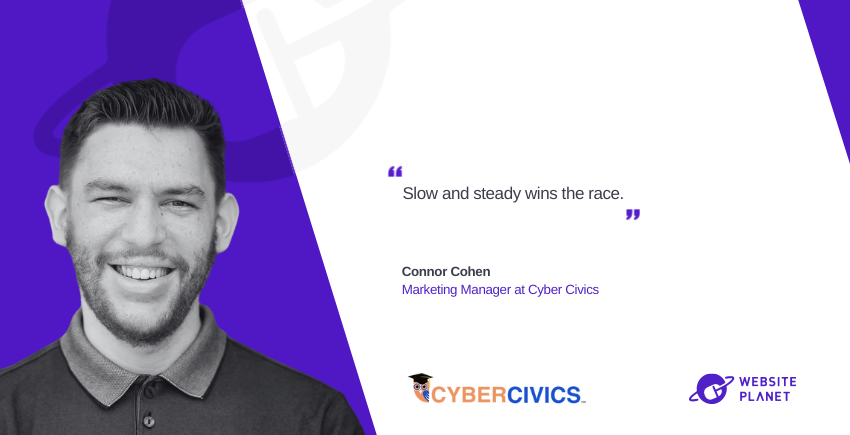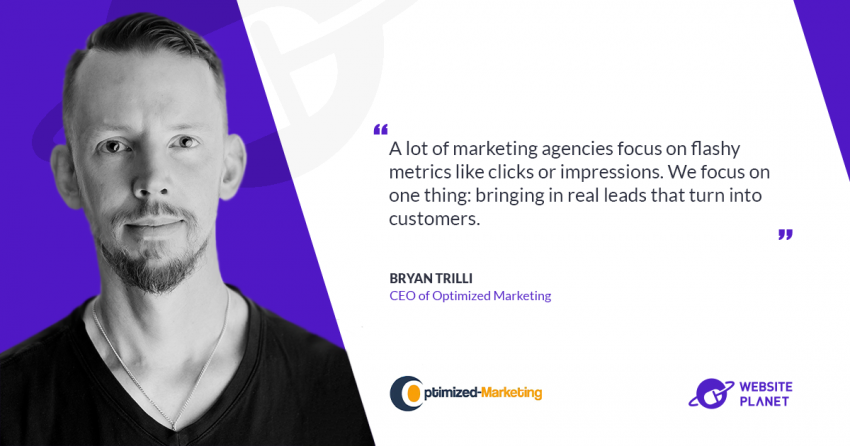What unique challenges are people in our industry facing right now?
The hospitality industry has definitely faced quite some challenges, especially in the past years with COVID. This had a big effect, not only during the pandemic but also in the aftermath. One major challenge we hear often is staffing. While this issue might not be unique to the hospitality industry, our customers struggle with finding enough staff, especially in kitchens and food and beverage operations like restaurants. Additionally, inflation and increasing costs are always topics for all hospitality businesses. Kitro helps them get a grip on their food cost control by measuring food waste and helping to reduce it. We designed Kitro to seamlessly integrate into existing workflows, meaning you just put the device where your organic bin is usually placed, put it on top of the scale, and continue to dispose of food scraps as you usually would. No need to worry about staff training or adjusting your existing work process.
🌍Food waste is an ethical, social, economic and environmental issue.
Each year, the global restaurant and food industry loses around $2.6 trillion because of food waste. This amount of food wasted could feed 2 billion people (more than double of the number of people starving in the world).
It is estimated that 8-10% of all man-made greenhouse gas emissions worldwide are a result of food waste, of which 26% is generated by the food service industry alone. In the EU, around 88 million tons of food are wasted every year, generating over 170 million tons of CO2.
By reducing food waste we actively fight climate change, hunger, malnutrition, plus help farmers and companies financially.
Sources:
https://www.ncbi.nlm.nih.gov/pmc/articles/PMC8225138/#B12-foods-10-01175
https://hungermap.wfp.org/
https://www.ncbi.nlm.nih.gov/pmc/articles/PMC8225138
https://www.credit-suisse.com/about-us-news/en/articles/media-releases/credit-suisse-research-shows-global-food-inequality-and-waste-co-202106.html
https://www.eufic.org/en/food-safety/article/food-waste-in-europe-statistics-and-facts-about-the-problem
https://food.ec.europa.eu/safety/food-waste_en
https://updates.panda.org/driven-to-waste-report
https://www.ncbi.nlm.nih.gov/pmc/articles/PMC8225138/#B12-foods-10-01175
https://hungermap.wfp.org/
https://www.ncbi.nlm.nih.gov/pmc/articles/PMC8225138
https://www.credit-suisse.com/about-us-news/en/articles/media-releases/credit-suisse-research-shows-global-food-inequality-and-waste-co-202106.html
https://www.eufic.org/en/food-safety/article/food-waste-in-europe-statistics-and-facts-about-the-problem
https://food.ec.europa.eu/safety/food-waste_en
https://updates.panda.org/driven-to-waste-report
How effective are the current methods for solving these issues?
Food waste is a topic that our customers are more and more confronted with. As the general awareness level about food waste has risen in recent years also on an individual level, it puts an additional pressure on food service businesses to address the issue. Additionally, the Sustainable Development Goals of the United Nations and the European Union’s regulations push for more resource-effective methods of working, including food waste management. Methods for food waste measurements have been quite limited up to recent years. In the past, restaurants might have measured manually with paper, pen, and a scale for a short audit period. Recently, the measurement methods have become more digital (semi-automated) however, they still require manual input or an extra step, which interferes with the normal workflow. Automated food waste tracking leverages sensors and machine learning to provide more efficient, accurate, and comprehensive data compared to more manual methods. This allows food service companies and hospitality businesses to better understand and reduce their food waste.Automated food waste tracking vs manual food waste tracking:
Kitro’s machine learning and computer vision algorithms can analyze 100% of the data collected to identify what has been wasted and also spot patterns and trends, allowing companies to proactively adjust processes and production volumes to reduce waste. Manual or semi-automated tracking provides limited data that is difficult to analyze for insights as it relies on employees to visually estimate and or manually record waste, which is time-consuming and prone to human error.| Automated food waste tracking | Manual or semi-automated food waste tracking |
| ✅High accuracy and consistency | ❌Prone to human error and inconsistencies |
| ✅ Efficient and time-saving enabling long term measurements | ❌Labor-intensive and time-consuming |
| ✅ Advanced data analytics and real-time monitoring | ❌Limited data analysis capabilities |
| ✅ Easily scalable for larger operations | ❌Challenging to scale effectively |
| ✅ Promotes effective waste reduction strategies |
💡With artificial intelligence at its foundation, KITRO offers a fully automated food waste data collection and analysis solution that, contrary to existing solutions on the market, is ‘plug and play’ (so super easy to implement), does not interfere with the business workflow, and yields higher savings.
Testimonial by Four Seasons de Bergues Hotel Geneva
How Kitro automates food waste tracking
KITRO offers users significant benefits, including time savings, as it eliminates the need for manual data entry and analysis. Chefs and F&B managers can quickly access visual reports and key insights through a user-friendly online dashboard, making it easy to understand waste patterns without extensive technical skills. Measuring is the first step to gain an overview of the food waste situation, however taking action based on data is the most important step, and that’s where we support our customers in their journey. We provide tailored recommendations and support, helping customers implement effective waste reduction strategies and achieve the best results. This comprehensive approach not only simplifies the process but also promotes sustainable practices, reducing both waste and costs.🚀 Our customers, who have measured with us for more than five months have reduced their edible food waste by up to 60%. This results in significant cost savings, anything between €25’000 – 65’000 per year.
“At MHP we are incredibly grateful for the professional relationship we’ve built and for the exceptional system you’ve provided. Kitro is not just a tool, it’s been a catalyst for immense positive changes; not only in our financial well-being. Kitro helps us to underpin MHP’s ambitious ESG strategy with tangible and credible measures.”
Hans-Peter Hermann, VP of Hotel Asset Management of MHP Group
